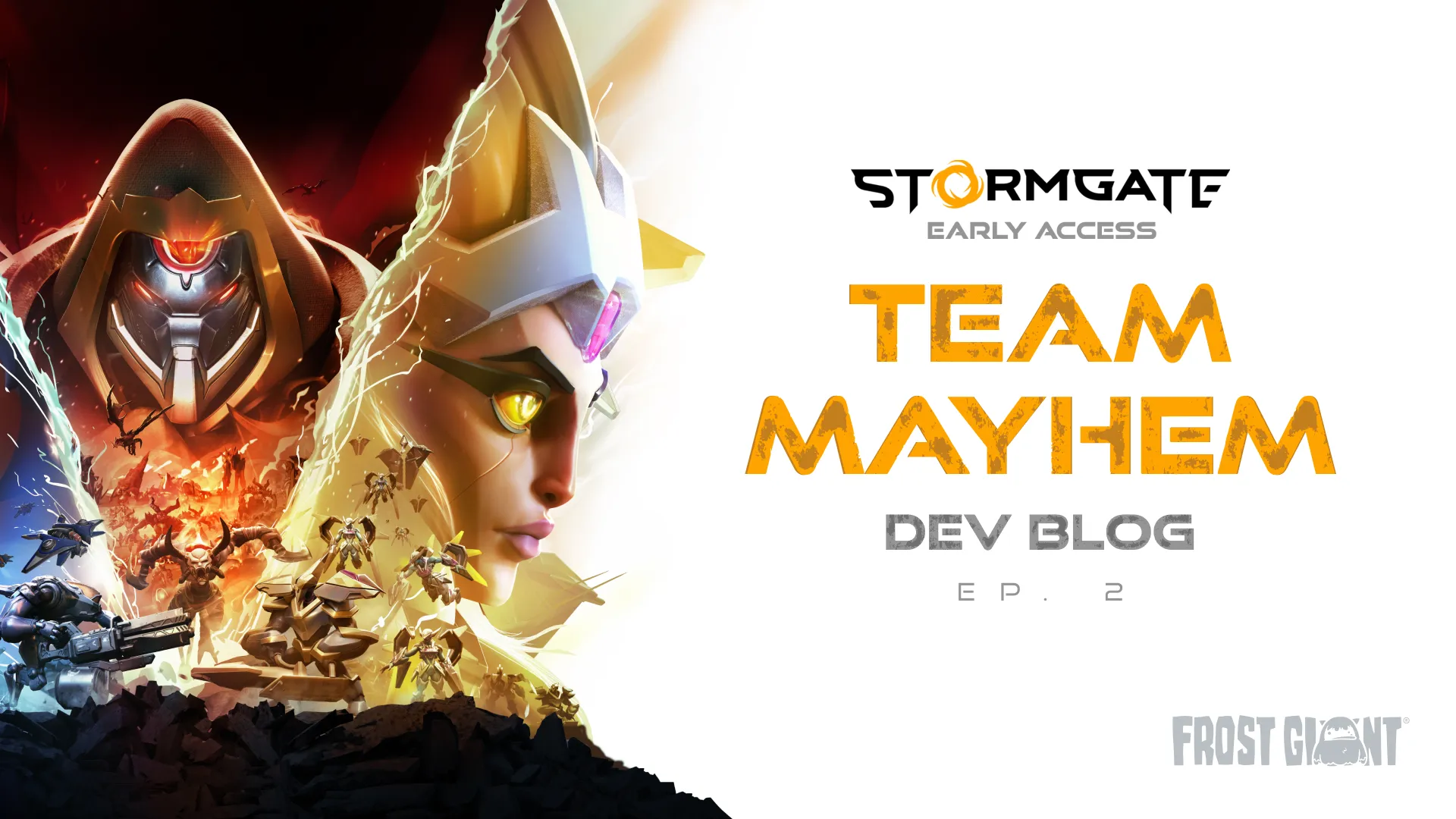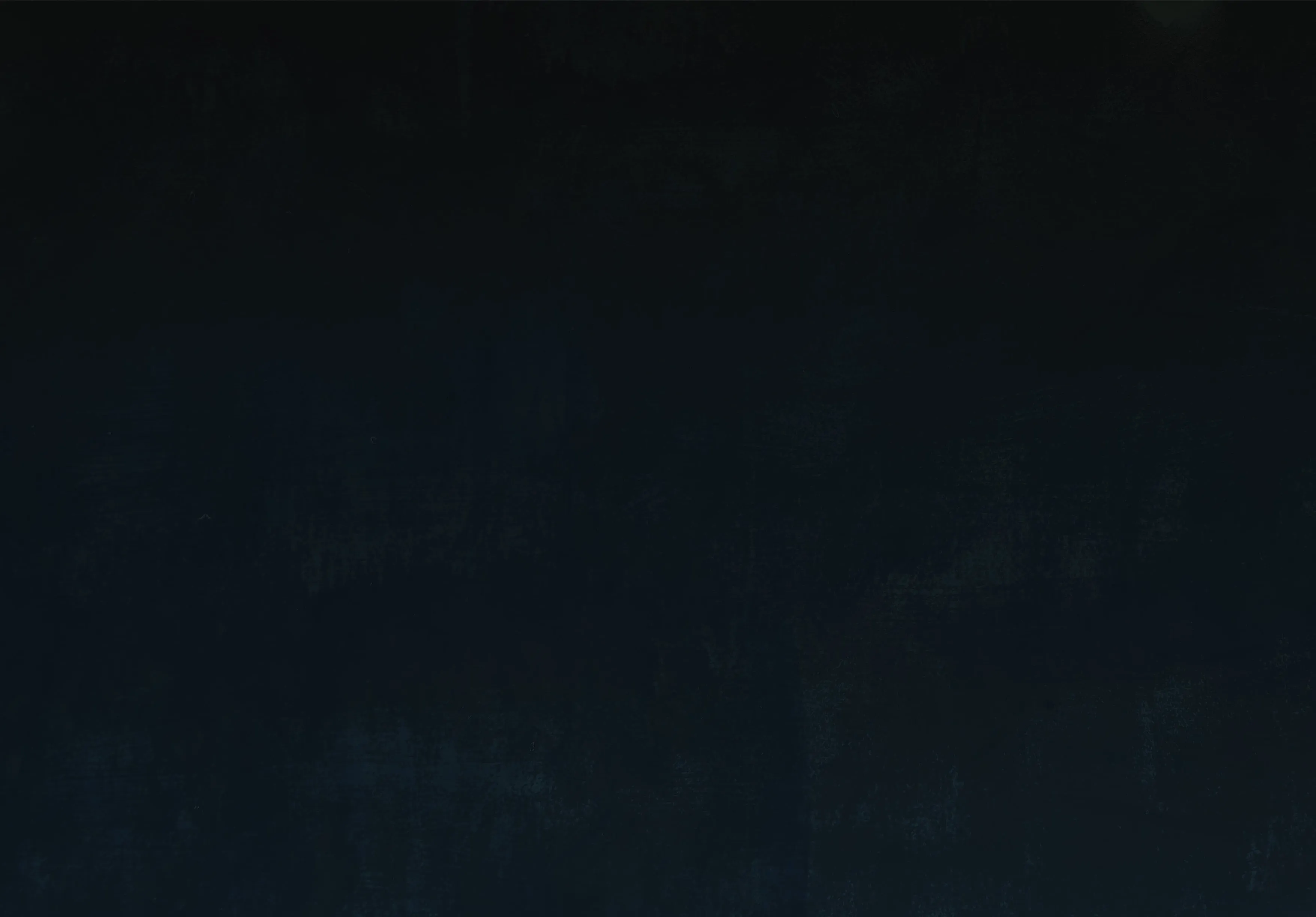Inside the Development of Team Mayhem – Episode 2: Playtesting and Iteration

Hello, everyone. We’ll begin by confirming what we shared in our latest Roadmap update: The new 3v3 game mode is now called Team Mayhem–a name chosen because it embodies the quick, frenetic multiplayer fun that we are aiming for. We’re not just calling it 3v3 because it’s a significant departure from what you might expect from 3v3 (two teams of three players fighting under vanilla standard RTS rules). We hope this name captures how different this new mode will be compared to traditional 2v2 and 3v3, which we can also revisit and support in the future.
Since work began on Team Mayhem, the strike team has been conducting multiple internal playtests each week, iterating and experimenting with each test to help refine what the rules and vision for the mode will be ahead of the upcoming alpha playtest.
Our objective at this time, as we shared in the first episode of this series, is to stand up a first draft of the mode that a limited group of players can sink their teeth into for playtesting. We originally considered releasing our first version of Team Mayhem as an open playtest, but have decided to give the game mode more time to cook, so the initial Team Mayhem closed playtest will be by invitation only and confidential. Much like how we ran our earliest alpha testing phases, our initial closed alpha playtests for Team Mayhem will be by invitation only. Our goal is not to have it finished this year, but to begin iterating and polishing with the help of that player feedback so that Team Mayhem can be that much more fun before we release it widely.
Our goals for Team Mayhem?
- Team-focused gameplay (Start together, end together)
- Short-to-Medium game-length (Easy to fit multiple matches into a play session)
- Loads of positive teamplay opportunities (Also, avoid conflict between teammates)
- Support Hero and Sub-faction variety (To keep the meta and team comps highly varied)
Working from these goals, our internal design process began with testing a laundry list of core gameplay systems and ideas that were implemented following very early prototyping and brainstorming. This enabled us to get a feel for how they held up in practice, as well as how well they matched up to our goals for the mode.
Here were some of the early rules for the initial Team Mayhem playtests.
Team Mayhem Initial Rules
- Two teams of three players start on opposite sides of the map
- Each team has a heavily defended base in a very safe starting area
- Your starting structure (HQ) automatically generates Luminite over time and is invulnerable, so there's no knockout via player structure elimination
- Each team also shares an allied "Core" structure that is the main Win/Loss condition
- Creep camps (map objectives) grant Victory Points and Therium
- Victory Points increase the amount of damage your team’s units deal to the enemy core
- A major boss creep is located on the map and, once defeated, will march towards the enemy Core to attack it - ignoring enemy units along the way
- No workers or starting scout units; eliminated micro-management of workers (all building, training, and upgrading is handled through the quick macro panel)
- You can build anywhere within your team’s vision
- To make each Hero and their Hero “Faction” feel distinct, they’ll each be refined down to five units, five structures, and five unit-specific upgrades, with a max supply of 100 for initial testing–additional upgrades act as tier gates
- No top bar abilities for this mode
- Structures can be set to “auto-train” units
- Expansion is limited to one structure (similar to a Collection Array), which is placed directly on a Luminite mine that auto-harvests
 Playtesting, playtesting, playtesting
Playtesting, playtesting, playtesting
Nothing helps fuel the "Quest for Fun" more than relentless playtesting and iteration. Our first internal playtests were limited to Amara only, to help the team stay focused on the mode's gameplay rules rather than the balance of Heroes or factions. Since then, our roster of playable heroes has expanded, but we continue to try to focus as much of our internal feedback and iteration as possible on the mode itself rather than the Heroes that fight within it.
Looking ahead, our approach to the first external playtest will likely be framed very similarly to how we conducted our internal playtests. To start things off, we will initially include a core group of three Heroes –Blockade, Maloc, and Kastiel. Each of these characters represents a very different and distinctive play style, enabling us to get a feel for player preferences and any community feedback around team composition and gameplay roles. After that initial public test concludes and we have solidified the core mode's ruleset and player experience, we'll move to expand the roster to include all of the game’s Heroes (as well as maybe even some Mayhem-exclusive ones!).
Here's a look at what we discovered from that first set of games and from our post-game surveys and discussions.
We’re finding the fun, but there’s plenty of room to improve
Overall, our devs are convinced that we were moving in the right direction. The fast-paced, explosive nature of team fights have received a strong positive response, but we've also learned there’s room for improvement. For example, some dev playtesters found that teching up didn’t feel necessary, due to some of the “starting” units being sufficient to carry them through the entire match. Other players were able to find success by spamming static defense.
This feedback mirrors some of the sentiment we see from players on the live game, who feel like Tier 1 units are all they need and don’t feel strong incentives to tech up. This is a good reminder for us to ensure that as players progress through the game, higher-tier units and strategies feel more rewarding and impactful–regardless of the game mode.
Resource management
One area of confusion for players was resource management, specifically Therium. Many playtesters didn’t understand how to gather it, while others even suggested that everyone should receive resources automatically. Our focus now is on making resource gathering more intuitive by adding clear indicators for what activities generate Therium and making sure that there are fun choices and tradeoffs between economic growth and the other aspects of gameplay.
Another point of economic conflict was the bonus resources provided by clearing creep camps. Players didn't like having to "compete" with their allies to gain those bonus resources, so we are responding by adjusting creep resource bonuses to automatically be distributed to the whole team, rather than exclusively to the player that defeated them.
Boom times! Building and expansion
Our initial free-form approach to building placement and expansions sparked a lot of discussion. Some players felt that constructing buildings, especially within their own base, lacked strategic depth. Others found that building expansions offered little in the way of high-stakes decision-making. We had some players who would even completely surround their Core with turrets, making it a slow and unfun slog for the other team to break through and finish the game.
In response, we are now attempting to use level layout to address this issue by creating clearly visible areas of control similar to the Celestial Cascade Field that explain where players can place static defenses and other structures.
How do I win? Victory Points and map control
One of the most significant pieces of feedback was a general level of confusion about the concept of Victory Points. Several testers forgot what Victory Points represented or didn’t notice their impact during the game. Players also wanted a clearer understanding of how map control—particularly capturing key locations—could impact their ability to close out a game. A lot of fundamental questions were asked, such as "Do we need a Victory Point system at all, then?" and "Why not just play until you blow up the enemy Core?"
We expect this aspect of the mode to be iterated on for quite some time, but are initially focused on enabling its current functionality to be communicated to players as clearly as possible. Because we don't currently know how much player frustration was driven by confusion about the system rather than the system itself, we are separating the two potential sides of the issue and solving one first, so that we can observe the impact of our changes on players before continuing to make more invasive changes.
All your base… Core defenses
Going into our initial testing, we were looking at our primary win condition: destroying the enemy team’s Core. Some testers also raised concerns about the lack of strong Core defenses, describing the Core itself as being "squishy" and too reliant on player protection. This concern was especially true for teams of players new to RTS games or for those with mixed experience levels, where some players would not know how to properly augment their Core by constructing additional static defenses.
In response, we’re exploring adding some amount of limited automated defenses to Cores, which will also hopefully make endgame moments feel more thrilling and strategic.
Many of us also felt that the map could benefit from more action occurring out in the middle, as creep camps were taken too quickly for the other team to be able to contest properly. Moving forward, we’ll adjust creep camps and capture mechanics to give players a bit more time to react and fight over key points.
Introducing: Core Battery Power
Additionally, to help further address both of the previous areas of feedback, we’re reworking the Victory Point system to be more visible, flavorful, and engaging. We’re temporarily calling it “Core Battery Power” but will replace that with something more snazzy if we wind up committing to the mechanic.
In its initial iteration, we had a visible progress bar broken into four segments. Each segment, when filled, would result in your Core firing at the enemy–similar to Major Galt’s Ion Bolt from the Wreck Havoc co-op mission. The first two segments, for example, would destroy some of the enemy team’s invulnerable automated defenses, which would make their base more approachable by your army. If your team was far ahead, this would offer an opportune time to close things out and secure victory. (We really liked the idea that when games weren’t close, they could be ended quickly.) But if the struggle was still too close to call, teams could fire additional barrages to make the enemy Core more vulnerable until an army was able to clinch victory.
 With this new approach, teams in our most recent tests were able to pick up “Batteries” to charge their Core. These Batteries could be obtained by destroying special Battery Towers that spawned every few minutes in the corners of the map. These Battery Towers were intended to be the most efficient way to directly damage the enemy team's defenses, and would help foster exciting team fights whenever they spawned.
With this new approach, teams in our most recent tests were able to pick up “Batteries” to charge their Core. These Batteries could be obtained by destroying special Battery Towers that spawned every few minutes in the corners of the map. These Battery Towers were intended to be the most efficient way to directly damage the enemy team's defenses, and would help foster exciting team fights whenever they spawned.
After some playtests, however, we made a change because the overall system felt too complex. After some discussion, we decided to simplify things by redesigning the Core Battery bar UI so that it would fire the Ion Bolt each time the entire bar filled up, before immediately resetting to empty so that the team could fill it again. In particular, we liked that this change would help encourage comebacks, a topic that we’ll touch on a little more soon.
Hero balance and pacing
Many of you are curious as to how Heroes will work in Team Mayhem. For starters, they’ll be very different from how they operate in 3P Co-op Missions. We are not re-using the meta-progression from 3P Co-op Missions in Team Mayhem.
Instead, we’ve decided to keep each hero capped at the same meta progression level. Although we are currently testing the mode with Level 1 Heroes, we may end up setting the competitive baseline at Level 5, 10, or something else entirely. This is still to-be-determined as we are focusing on establishing the core rules of the mode first before we really dig into the competitive balancing of the Heroes themselves.
Why are all Heroes the same level for all players?
Above all else, we want this mode to be truly fair for everyone and not be a pay-to-win experience. While we may move to a different system in the future if it feels like the right fit for the game, we believe it’s important that all players have access to the Heroes they need to create balanced and fair matches without requiring any sort of purchase.
For our initial external playtests, only Blockade, Maloc, and Kastiel will be available for use in Team Mayhem, regardless of whether they have been purchased or not. (To be abundantly clear, we might make changes to this approach after the initial playtests, as we are intentionally holding back on defining the mode's final monetization model until after the gameplay has been fully hardened with input from the community.)
What does each Hero come with?
Each Hero represents a sub-faction of sorts, and will be able to recruit from a curated selection of units–helping to set each Hero apart with a firm gameplay identity that still provides a good mix of gameplay options to choose from. The goal is to enable heroes to feel very distinct from each other, while still upholding the mode's objectives.
For example, here are the starter lists of units for each initial Hero:
- Blockade: Guardsman, Crusader, Combat Medic, Atlas & Evac, Helicarrier
- Maloc: Fiend, Flame Imp, Fire Giant, Chimera, Mortardon
- Kastiel: Eradicator, Kri, Saber, Scythe, Archangel
The relative balance of power levels between Heroes and regular units was a very hot topic during the playtest. Heroes felt overwhelmingly strong, with some players noting that Hero abilities were used so frequently that it felt like a "mostly micro game." At the same time, they wanted more meaningful decision-making moments outside of micro management.
As we move forward, we’re going to address this by reducing the rate of Hero energy regeneration and increase the need for players to manage their energy. We don't want to go too far and starve Heroes of being able to use their abilities, but we DO want ability usage to be a meaningful choice with tradeoffs to consider. For example, the co-op version of Blockade feels like he can heal A LOT, which feels great when you’re playing as him–but feels much worse when you're playing Team Mayhem and he’s smacking your Hero in the face with his hammer while laying down a non-stop stream of heals. Please note that these changes will be exclusive to Team Mayhem, so that competitive balancing doesn't accidentally eliminate the overpowered fun that is expected in co-op.
We are also experimenting with Heroes being able to level up mid-game using a modified version of our Veterancy system. This will enable Hero power to grow from the beginning of a match to the end, and reward players for accruing experience through successful play. As Heroes level up, they will gain increases to their health, damage, and abilities, enabling them to become much more capable as the game goes on. To be clear, this leveling process is different from the out-of-game Hero progression in 3P Co-op, and provides an immediate, temporary reward for your in-game actions that is reset at the end of each match.
Comeback mechanics
One thing we’d like to achieve is keeping our game from feeling too snowbally–we want players to feel like they should fight hard, even after falling behind, because there should be a path for players to come back from a rocky start through skilled play, even when their opponents are at a supply or economic advantage. There are many possible ways to potentially accomplish this and we're working to identify which solutions will feel the most fun and interesting to players. For example, one comeback mechanic might be to temporarily provide the losing team with increased bonus resources for killing Creeps. Another might be to charge the losing team's Core Battery faster, or to enable their slain Heroes to respawn quicker. We’re planning to experiment with multiple different solutions and will go more in-depth on this topic in a future update.
What’s next?
As we incorporate this internal feedback, we're focusing on increasing the clarity around the mode’s mechanics and systems, improving the pacing, and creating more opportunities for “Did you see that?!” moments throughout the game.
As we shared earlier, we aim to limit our initial release of the mode to a very small closed Alpha playtest. Public access will become available after we have been able to iterate, and when we believe that the mode is ready for broader testing and feedback. Please note: we fully expect that a lot will change between now and when Team Mayhem is available to the public.
If you’re reading this, thank you for following our development journey. Once Team Mayhem is released to the public, we hope you’ll check it out and help us continue to improve and iterate on this exciting game mode by providing feedback.
Stay tuned for more development updates and, as always, we are grateful for your support.





